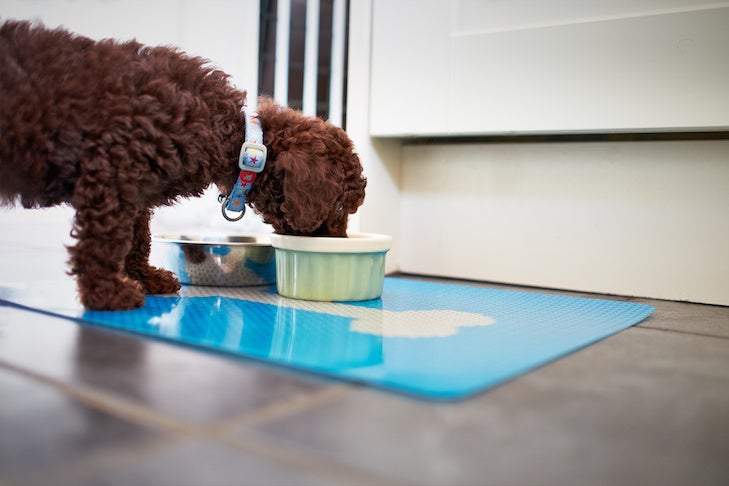Can most dogs eat yogurt? Yes, but that doesn’t necessarily mean that they should. While yogurt is not toxic to dogs, many canines might have trouble digesting it because it contains lactose. And plenty of pups have trouble with foods that contain lactose, such as milk.
Is Yogurt Good For Dogs?
Yogurt is high in calcium and protein. It also can act as a probiotic, which can be good for the digestive system. If you feed your dog yogurt, it should be plain and free of any added sweeteners, both natural and artificial. Added sugars are not healthy for dogs or humans, and some artificial sweeteners, such as xylitol, are toxic for dogs.
Additionally, you should also look for yogurt that has lots of live cultures, such as plain, Greek-style yogurt. This yogurt is better because it has lower levels of lactose than regular yogurt.

Hazards of Feeding Dogs Yogurt
Again, although yogurt is not toxic, your dog might have trouble digesting it. Dogs’ bodies are not designed to digest lactose after puppyhood, and, therefore, a food high in lactose can cause gas, diarrhea, and vomiting. If your dog displays any of these reactions, be sure to check in with your veterinarian. As with all treats, feed your dog a small amount and see how they react.
As with any dairy product, dog owners also have to be concerned with the fat content. Any time you give a dog too much fat in their diet, they can suffer from stomach upset, or even pancreatitis, a serious and potentially fatal illness. As previously mentioned, always make sure the yogurt contains no xylitol.
Can Yogurt Benefit Dogs?
Do the probiotics in yogurt benefit a dog’s digestive system the way they benefit a human’s digestive system? While it is possible for a dog to get this benefit from yogurt, there are better sources of probiotics.
Purina® Pro Plan® Veterinary Diets FortiFlora® is a probiotic supplement designed for dogs and cats, which is frequently recommended by veterinarians. FortiFlora® provides the good bacteria that can help improve your dog’s intestinal health, without the lactose that may be difficult to digest.
If you have any questions or concerns about what to feed your dog, consult your veterinarian.
Here at the AKC, we field many queries from anxious dog owners about what is and isn’t safe for their canine companions to eat. Questions range from the obvious (“Can dogs eat steak bones?”) to the trendy (“Can dogs eat quinoa?”) Check out more “Can dogs eat…” articles on AKC.org to see what foods could be harmful to your dog, including cherries, avocados, and onions.


